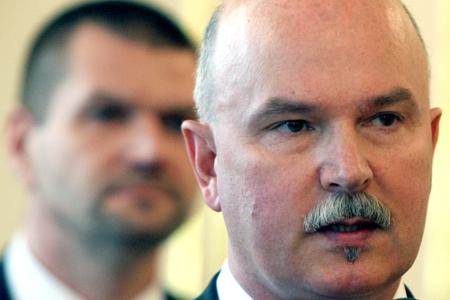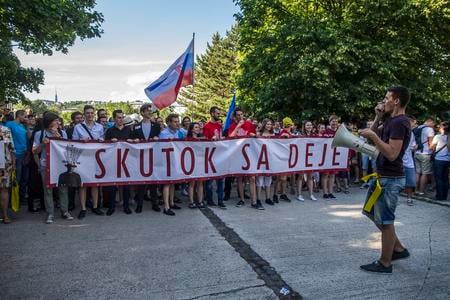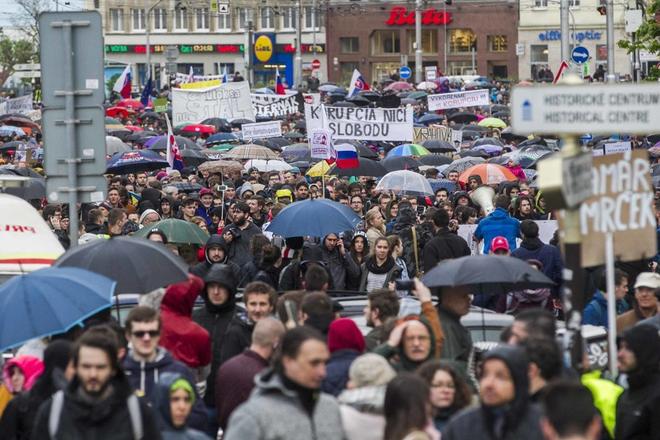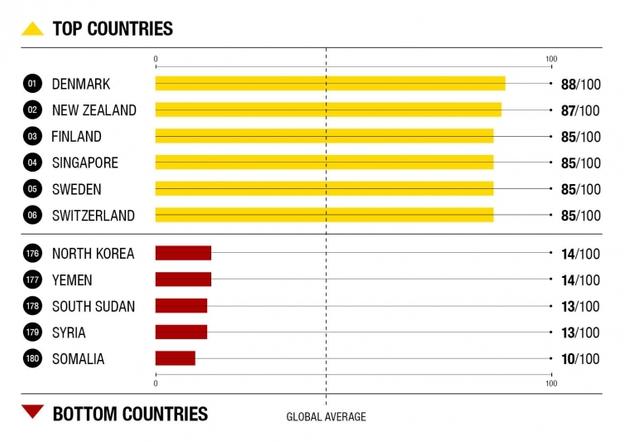Slovakia has reported its worst score in perceiving corruption since 2013. It placed 57th in this year's Corruption Perceptions Index (CPI), published by Transparency International on January 29.
It is a drop of three positions compared with 2017. The country scored only 50 out of 100 points.
Hungary, Croatia, Greece, Romania, Bulgaria and Slovakia are the EU member states failing to cope with corruption the most.
While Denmark and New Zealand, with scores of 88 and 87, respectively, top the CPI this year, Somalia, Syria and South Sudan, with scores between 10 and 13, are at the bottom of the index.
Deplorable punishments
The case of murdered journalist Ján Kuciak, who wrote about corruption and the frauds of tycoons, shows how Slovakia fails to fight corruption.
"Only 47 people were charged with criminal acts of corruption in 2018, which is the lowest figure since 2009 and half of the annual average of the charged between 2010 and 2014," said Gabriel Šípoš, head of Transparency International Slovakia.

He considers the punishment for corruption to be poor, giving the example of former ministers Marian Janušek and Igor Štefanov, who were sentenced for corruption in the so-called bulletin-board tender after 11 years.
"Slovakia, alongside Bulgaria, is among those EU countries where most people do not trust the police," Šípoš added.
Picturing American billionaire George Soros as a threat to Slovakia's democracy by Smer chair Robert Fico, or the description of the third sector as muddy and rich by Culture Minister Ľubica Laššáková (Smer), does not help fight corruption either, according to Šípoš.
Positive changes
On the other hand, the journalist's murder and subsequent protest gatherings have brought about some positive changes.

Tycoons Marian Kočner and Ladislav Bašternák have been charged, or sentenced, in tax-related cases, while Fico stepped down as the prime minister and so did ex-interior minister Robert Kaliňák.
Moreover, Tibor Gašpar resigned from the post of police corps president and several people have been arrested in the case of Kuciak's murder.
"So-called small corruption such as bribes of dozens of euros have continued to drop, too," said Šípoš.
Only 12 percent of people experienced a little bit of corruption last year, which is the lowest number in history, he added.
"Sentencing murderers and people who ordered the double murder, as well as a sharp increase in the pace of punishing so-called big corruption fish, could help the actual restart of the fight against corruption," said Šípoš, adding the depoliticisation of the police, judiciary, and other public offices can also help Slovakia improve its score on the CTI.



 (source: Petit Press - Tibor Somogyi)
(source: Petit Press - Tibor Somogyi)
 Countries with the best and the worst scores on the 2019 Corruption Perceptions Index (source: Transparency International)
Countries with the best and the worst scores on the 2019 Corruption Perceptions Index (source: Transparency International)